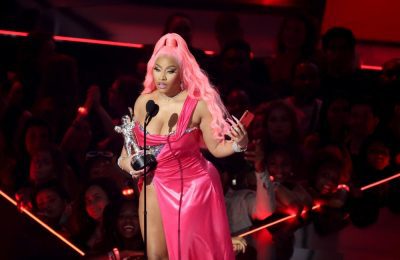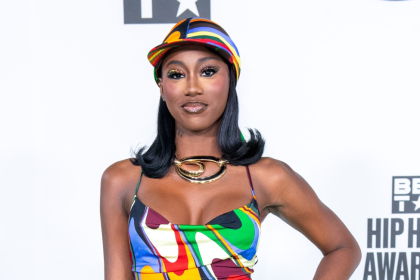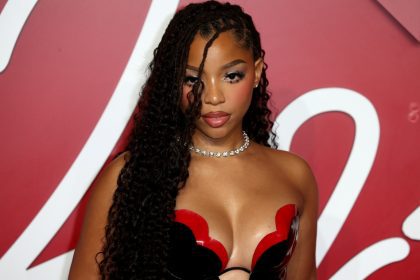It’s been a busy week for hip-hop veterans — but it hasn’t exactly been a good sort of busy. 90s superstars Busta Rhymes and Lil Kim both made headlines this week for their latest endeavors, but both projects were met with head-scratching and derision, as opposed to praise and adulation.
The frenetic Rhymes made an appearance in a laughably awful advertisement for a new 2015 Toyota Sienna minivan — nicknamed the “Swagger Wagon,” as the ad indicates. The commercial features Rhymes rhyming furiously alongside a “hip” stereotypical suburban white family (“The Neuberts”) and is the kind of thing that would’ve been considered too tired for a “Saturday Night Live” sketch 20 years ago, let alone in 2014. That an artist with a respectable pedigree, such as Rhymes, would appear in this kind of tomfoolery makes one wonder if he just needs money or had a severe lapse in judgment. At this point, hip-hop is absolutely prime material for parody, but the parody should be smart or at least funny. Is anybody laughing with this tacky nonsense? From the reactions on social media, it sure doesn’t seem like it. Rhymes recently revealed that he’s parted ways with the Cash Money label because he isn’t “compromising” his artistic vision. Those words sound a little hollow when he’s appearing in a commercial rapping about a “Swagger Wagon.”
A little discernment is necessary, Bussa Buss.
For her big splash of the week, Lil Kim has returned to her most tried-and-true post-2009 publicity generator: attacking Nicki Minaj. Minaj and Beyoncé released the remix to Bey’s song “Flawless” last weekend, and within hours Lil Kim, who took “offense” to a line in Minaj’s verse about being the Queen of Rap, decided to issue a response to the perceived insult. She dropped her own remix to the song on the Web like a rock, complete with artwork that Photoshopped her image onto the original remix’s art in place of Nicki’s. She followed that up with another diss track, pointedly titled “Identity Theft” aimed at Minaj. A veteran artist consistently taking shots at a chart-topper–while not putting that same effort towards her own career–earns little respect and their claims of artistic plagiarism tend to fall on deaf ears after awhile. That certainly seems to be the case with Kim. The act has grown tired (it always was, really); but her shrinking cadre of die-hard fans still cheer her on, turning her into some kind of Botox-injected martyr who is above criticism because of what she used to be.
Hip-hop can be a difficult genre in which to grow old gracefully. That much has been obvious for decades now. But there is a way to do it. Especially in the age of social media and with so many younger artists eager to have established stars guesting on their projects. Bun B isn’t rapping in Toyota commercials. Eve isn’t dropping diss songs aimed at Iggy Azalea. No one’s judging Rhymes for getting money, but his career hasn’t fallen so far, so fast that he has to resort to hamming it up in corny TV ads. And everyone understands Minaj’s debt to Kim, but years of going after her in song while treating her own career like an afterthought makes it hard for anyone other than her staunchest supporters to take Kim seriously these days. It didn’t have to be like this.
Public Enemy front man Chuck D was also busy this week. He released his new single to the Web; “Give We the Pride,” a message track with soul legend Mavis Staples. The song is as topical as Chuck always is, with the hip-hop vet railing against materialism and shallowness in the culture. It won’t top the charts and it won’t add anything to his already-cemented legacy, but it’s Chuck being Chuck and delivering what his fans have come to expect, while also doing something that sounds inspired and honest to where he is creatively in 2014. Some of these other hip-hop elder statesmen and stateswomen could take a lesson from the Prophet of Rage and try to look a little less desperate to stay “relevant.” You’ve cemented your legacy — just focus on creating strong art.
Or, at the very least, try not to become a cartoon.












